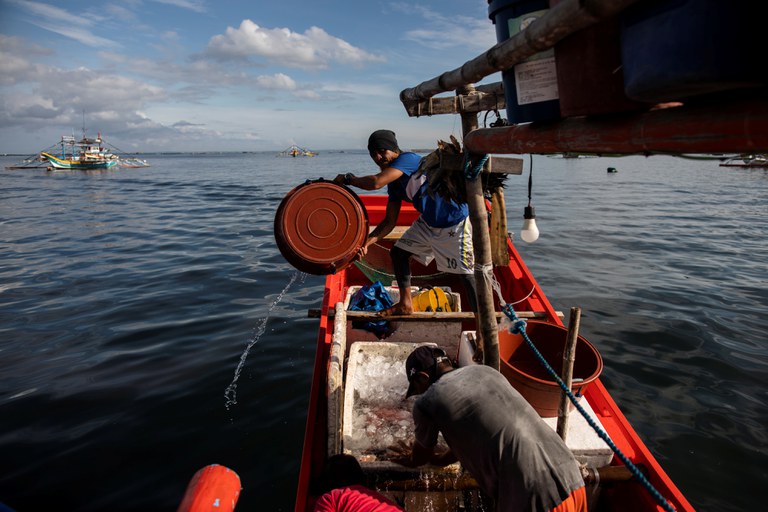Thomas Daniel was quoted on the Radio Free Asia
Experts say it is likely to continue claiming nine-tenths of the waters and resisting Western ‘interference’.
by RFA Staff, 14 October 2022.
The 20th National Congress of the Chinese Communist Party (CCP), which convenes in Beijing on Oct. 16, is expected to grant an unprecedented third five-year term to Xi Jinping, the CCP general-secretary and state president. In the run up to the congress, RFA has examined the 69-year-old Xi’s decade at the helm of the world’s most populous nation in a series of reports on Hong Kong, foreign policy, Chinese intellectuals, civil society and rural poverty.
China’s Communist Party kicks off its important congress this Sunday, with Xi Jinping set to retain his position as the country’s paramount leader for another five years. Analysts say they don’t expect much change in Beijing’s policy in the South China Sea.
China has become more assertive in supporting its claims to almost 90% of the South China Sea and demarcating its maritime boundaries with the controversial nine-dash line, as well as developing and militarising a number of rocks and reefs that are also claimed by other countries in the region.
China’s large fishing fleets, assisted by coast guard vessels, have been accused of swarming regional waters, pushing neighbouring countries’ fishermen from their traditional fishing grounds.

In 2016, an international tribunal ruled that most of China’s claims in the South China Sea, including the nine-dash line, were invalid but Beijing has so far ignored the ruling.
“The increasing coercion and risk tolerance is a result of Xi Jinping’s policies,” said Greg Poling, director of the Asia Maritime Transparency Initiative (AMTI) at the Centre for Strategic and International Studies (CSIS).
“Xi put maritime issues at the core of the ‘China Dream’ way back in 2013 and hasn’t changed course since. No reason to think that would change now,” said the Washington-based maritime expert.
“China Dream” is an inspirational slogan and doctrine that is considered the hallmark of Xi’s leadership since he came to power in 2012.
In his first presidential address to the nation in March 2013, Xi called on the public to “strive to achieve the Chinese dream of great rejuvenation of the Chinese nation”.
Under this slogan, China as seen by the outside world has become more nationalistic and assertive than before.
Assertive maritime China
“This approach has shaped China’s vision towards its interests, including those in the South China Sea,” said Huynh Tam Sang, a Vietnamese analyst.
Vietnam, one of the six claimants in the South China Sea, is considered one of the more forceful opponents of China’s stance.
“To consolidate his supreme leadership, Xi Jinping may take an even harder line on issues concerning China’s core interests, including the South China Sea,” Sang told RFA.
“Taking a softer stance would undoubtedly undermine Xi’s status – which is on the rise to be a symbol of China’s national rejuvenation,” he said.
China, Vietnam and other countries in Asean have been discussing a so-called Code of Conduct (COC) – a set of rules of the road in the South China Sea. However, there is almost a consensus among observers that an agreement is nowhere near.
“The COC remains as far away today as it was in 2002 when Asean had to settle for a non-binding DOC because of China’s intransigence,” said AMTI’s Greg Poling.
DOC, abbreviation for Declaration on the Conduct of Parties in the South China Sea, is the first political document signed by China and Asean in order to set up basic principles for negotiation and foster dialogue among claimants with a COC as the eventual target.
Never-ending disputes
During the last twenty years since the signing of DOC, Asean has watched China become “a powerful maritime power with growing naval capabilities” as described by analyst Huynh Tam Sang.
“China no longer hides its maritime ambition and it would potentially continue to harbor pressure over smaller states in the South China Sea,” Sang said.
Economic coercion by Beijing and a rift inside Asean also play a role in the dispute solving process. Many Asean countries have China as their biggest trading partner, and in some cases, biggest supplier of foreign direct investment (FDI).
“Diplomatically, most of the other claimant states continue discussions with China closely to uphold their interests but also mitigate risks. With these claimants, China has the added advantage of time,” said Thomas Daniel, a senior fellow at the Malaysian Institute of Strategic and International Studies (ISIS).
“China has slowly but consistently moved to change the status quo in the South China Sea, especially in terms of its presence and ability to control the escalation dominance,” said Daniel.
A game changer, in his opinion, would be how China responds to “extra-regional stakeholders who may continue to demonstrate their maritime and aerial presence in and around the South China Sea to signal their disagreement on Beijing’s approach.”
Beijing has repeatedly protested against what it calls the involvement of “external forces” in the region such as the United States which claims to be “an Indo-Pacific power.”
The latest US National Security Strategy released on Wednesday said Washington “will work with other regional states to keep the Indo-Pacific open and accessible and ensure that nations are free to make their own choices, consistent with obligations under international law.”
“We will affirm freedom of the seas and build shared regional support for open access to the South China Sea,” it said.
Chinese Foreign Minister, Wang Yi, said in a recent speech that “as a major maritime country, China cannot and will not be separated from the sea and the South China Sea.”
From Chinese leaders’ statements, it is obvious that “China’s proactive ‘struggle’ to uphold its core interests and baselines are paramount, party congress or no party congress,” said Thomas Daniel from Malaysia’s ISIS.
This article was first published in the Radio Free Asia, 14 October 2022.





